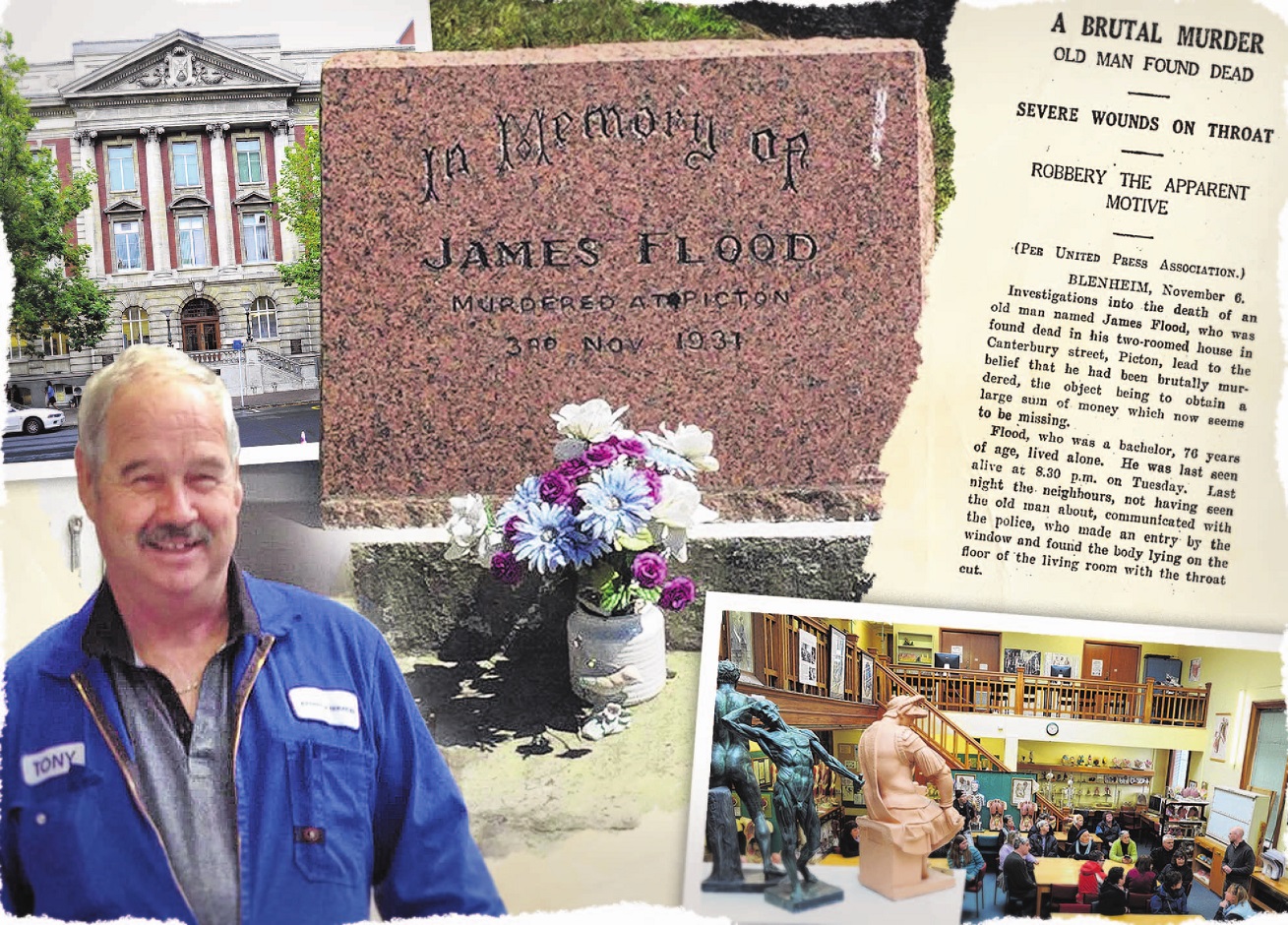
Questions are being asked about why the University of Otago is still in possession of a man’s skull, 91 years after he was murdered in a brutal axe attack.
Seventy-six-year-old Picton man James Flood was murdered by 58-year-old Edward Tarrant on November 3, 1931.
After the elderly man was practically decapitated by multiple axe blows, his damaged skull was displayed in court.
After the trial was over Tarrant was executed by hanging and the skull somehow passed to the university’s anatomy department.
It has been there ever since.
Following the reburial of an unidentified gold miner in Cromwell last month, a former researcher in the department, Dr Rachel Scott, raised questions about why the university was still in possession of a murder victim’s skull.
She said concerns were raised years ago, but when the Otago Daily Times contacted his descendants this week they were unaware the skull was in storage at the university and surprised to hear they had been tending an incomplete grave.
The story started in 1931, in the midst of the Great Depression.
Mr Flood’s neighbours raised the alarm after he had not been seen for several days at his home, a two-bedroom cottage where he lived alone.
A local police officer entered the house through a window on November 5, 1931, and was met with a grisly scene.
A pool of blood was congealed around the head of the victim, while blood was splattered across the skirting boards and walls.
The back of Mr Flood’s skull had been smashed in and there were wounds to his throat so severe his neck vertebrae had been severed.
A few silver coins were discovered on his person.
Mr Flood was known to possess ample means from a farm he owned at Port Underwood, but he had no bank account.
Evidence given in court revealed he kept £200-£300 on his person at all times — between $25,000 and $37,000 in today’s money.
His battered wallet was found in the possession of Tarrant, who told police he discovered it in a hedge while he was searching for eggs.
Tarrant denied killing Mr Flood, despite the court hearing evidence he paid his debts more freely following the murder with aged bills that matched the description of the money carried by the deceased.
The accused was also a skilled axeman and evidence presented at the trial suggested Mr Flood had been dealt a heavy blow to the back of his head followed by two blows to his throat with an axe.
Pathologist Dr Lynch gave evidence based on his examination of the exhumed body and a gasp went around the court when he produced line drawings showing the extent of injuries to the skull.
He also exhibited the skull, taking it up to the jury box.
A newspaper report of the trial described "the cap of the skull being sawn through so that it could be removed like the lid of some grotesque tobacco jar, [while] a jaw bone with teeth complete was held in position by a couple of small springs".
Tarrant was convicted of the murder of Mr Flood and hanged in 1933.
After the trial, the skull came into the possession of the anatomy department at the university.
It is kept in storage at the anatomy museum.
Dr Scott said she and another postdoctoral student tried to get the ball rolling on a repatriation process and were met with a positive response, but she was not sure how it had progressed.
She believed the university had been "a bit slow" and felt like the right thing for it to do would be to speed up the repatriation process.
She said they brought the skull to the attention of department heads before 2020.
Prof Lisa Matisoo-Smith, of University of Otago department of anatomy, confirmed the department was in possession of Mr Flood’s skull. She said it had been brought to her attention in 2021, when she was head of the department.
The issue had been passed on to the university registrar following conversations with a bioethicist and that was the last she had had to do with it.
"It was not something that we had collected, it was something that came into our possession," she said.
Repatriation of remains was a priority for the department, but the question of Mr Flood’s skull was quite different from other repatriation projects the department was involved with, which largely involved working with descendants of iwi, she said.
Questions of repatriation needed to be handled carefully, and often involved protracted negotiations with descendant communities.
Each case was different, she said.
Descendant Tony Flood, of Blenheim, said he was "not at all aware" the skull was in the possession of the university.
"I just assumed it would have gone back in the ground," he said.
He had done some reading on his family history over lockdown, but there had been no mention of what happened to the skull.
His sister maintained Mr Flood’s grave in Picton Cemetery, which was concreted over.
The deceased was their grandfather’s uncle.
He was happy for the skull to remain in the possession of the university but hoped he would be able to view it when he next visited Dunedin, he said.
"What you don’t know doesn’t bother you."
A University of Otago spokeswoman said the anatomy museum held many human tissue samples for the purposes of research and teaching, all of which were treated with the utmost respect and ethical consideration, governed by the Human Tissue Act.
Where possible, the university worked with the appropriate parties who had an interest in the tissue the museum held.
It was vital that the university was mindful of sensitivities around privacy and ethics, and she was unable to comment further, she said.










